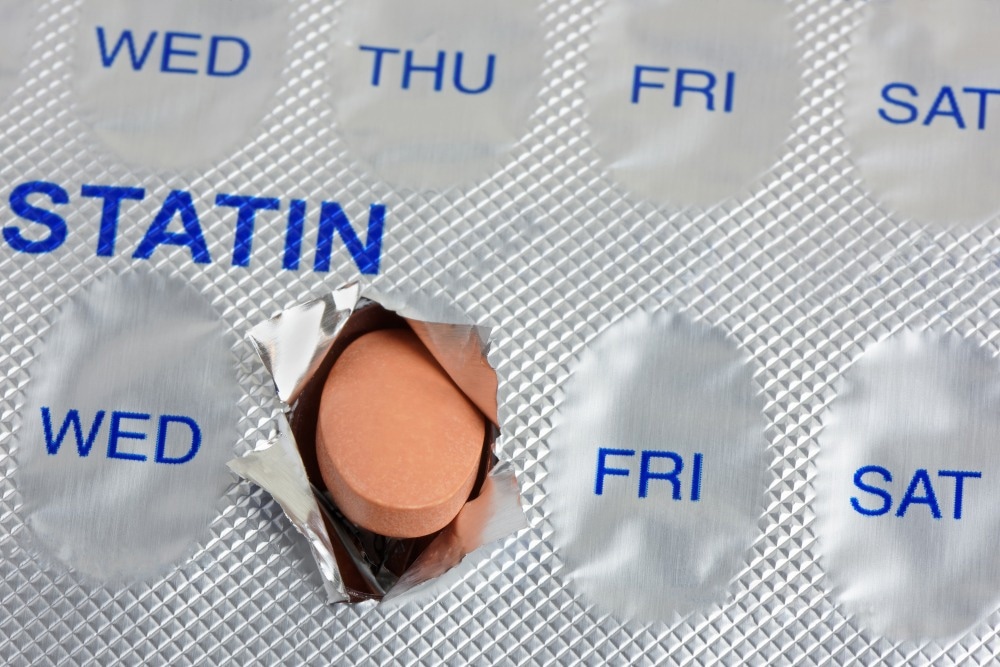In a recent study published in PLOS ONE, researchers evaluated coronavirus disease 2019 (COVID-19) outcomes in patients taking four types of cardioprotective medicines.

Background
COVID-19, caused by severe acute respiratory syndrome coronavirus 2 (SARS-CoV-2), remains a substantial public health threat. Individuals with cardiovascular risk factors such as obesity and diabetes have an increased risk of adverse COVID-19 outcomes. Specifically, older patients have an elevated risk, possibly due to the loss of endogenous cardioprotective mechanisms and endothelial dysfunction. As such, it has been postulated that medicines that decrease cardiovascular risk may benefit COVID-19 patients.
Renin-angiotensin-aldosterone system inhibitors (RAASi) exhibit anti-inflammatory effects and may prevent lung injury caused by CoVs and other viruses. Statins have antithrombotic and anti-inflammatory effects, which may help reduce COVID-19 severity. Besides, a diabetic medicine, metformin, also lowers tumor necrosis factor (TNF)-α and inflammatory adipokines that contribute to disease severity in COVID-19. Moreover, aspirin has antiplatelet and anti-inflammatory properties that may minimize the risk of adverse outcomes in COVID-19.
About the study
The present study examined the associations between cardioprotective medicines (metformin, aspirin, statin, and RAASi) and adverse clinical outcomes in COVID-19. The study cohort comprised adults with a confirmed diagnosis of COVID-19 who had at least one encounter with a Mass General Brigham-affiliated primary care practice before the diagnosis. Individuals were included if they tested positive for COVID-19 from March 2020 to March 2021.
The researchers defined index date as when (the first) sample was collected that tested SARS-CoV-2-positive. The study’s primary outcome was hospitalization within one month of a positive test. Secondary outcomes were admission to the intensive care unit (ICU), intubation during hospitalization, and all-cause mortality within three months.
Four cardioprotective medications – aspirin, RAASi, statins, and metformin, were separately assessed as predictor variables. Individuals with an active prescription of any of these medicines, when tested SARS-CoV-2-positive, were deemed ‘exposed.’ In contrast, individuals with past prescriptions were controls. Multiple logistic regression was performed to evaluate associations between the use of cardioprotective drugs and poor outcomes in COVID-19.
Findings
The study cohort comprised 13,585 subjects with past or active prescriptions. Statins were used by 8,891 patients, aspirin by 4,487, RAASi by 8,342, and metformin by 3,696 patients. Approximately 22% of participants (2941) were not using any medicines on the index date, 41.8% were on one medication, 23.9% on two, 10.6% on three, and 2.1% were using all four drugs. The mean age of the participants was 62.5; the study cohort was predominantly female and obese.
Baseline characteristics differed between individuals with current and past medication use. Patients with active prescriptions of RAASi, statins, or metformin had a lower Charlson Comorbidity Index (CCI) than those with past prescriptions. Patients with previous prescriptions were younger than current users in the aspirin cohort but older in RAASi and statin cohorts. Overall, 14.5% of patients were hospitalized; 5.6% required ICU, 2.8% required intubation, and 5.3% died.
Bivariate analyses revealed that patients taking RAASi and statins had a lower risk of hospitalization, admission to the ICU, and death. Taking metformin was solely associated with lower mortality risk. On the other hand, aspirin was associated with an elevated risk of hospitalization and ICU admission. In addition, multivariable analyses showed associations between statin, metformin, and RAASi use with lower mortality risk. By contrast, aspirin use was related to increased hospitalization risk.
The female sex was linked to a lower risk of hospitalization and ICU admission among metformin users. Higher body mass index was associated with elevated hospitalization, ICU admission, and intubation risks across all subjects. Higher CCI scores and proteinuria were associated with an increased risk of all adverse outcomes in all patients. Secondary and sensitivity analyses, which limited control cohorts to patients with adverse reactions to medications, were concordant with primary findings.
Conclusions
In summary, the study found no evidence of consistent benefits of using cardioprotective medications in COVID-19 patients. Nonetheless, several drugs were associated with reduced mortality risk but not a lower hospitalization, ICU admission, or intubation risk.
The study’s limitations include the 1) observational nature, 2) the inclusion of patients from a single healthcare delivery system, limiting generalizability to the entire United States or the global population, and 3) the non-inclusion of cardiometabolic drugs such as sodium-glucose cotransporter 2 inhibitors, glucagon-like peptide 1 agonists, and anticoagulants, among others.
- Morrison, F., Su, M. and Turchin, A. (2022) "COVID-19 outcomes in patients taking cardioprotective medications", PLOS ONE, 17(10), p. e0275787. doi: 10.1371/journal.pone.0275787. https://journals.plos.org/plosone/article?id=10.1371/journal.pone.0275787
Posted in: Medical Science News | Medical Research News | Disease/Infection News
Tags: Aldosterone, Angiotensin, Anti-Inflammatory, Aspirin, Body Mass Index, Cardiometabolic, Coronavirus, Coronavirus Disease COVID-19, covid-19, Diabetes, Drugs, Glucagon, Glucose, Healthcare, Intensive Care, Medicine, Metformin, Mortality, Necrosis, Obesity, Primary Care, Proteinuria, Public Health, Renin, Respiratory, SARS, SARS-CoV-2, Severe Acute Respiratory, Severe Acute Respiratory Syndrome, Statin, Syndrome, Tumor, Tumor Necrosis Factor

Written by
Tarun Sai Lomte
Tarun is a writer based in Hyderabad, India. He has a Master’s degree in Biotechnology from the University of Hyderabad and is enthusiastic about scientific research. He enjoys reading research papers and literature reviews and is passionate about writing.
Source: Read Full Article
